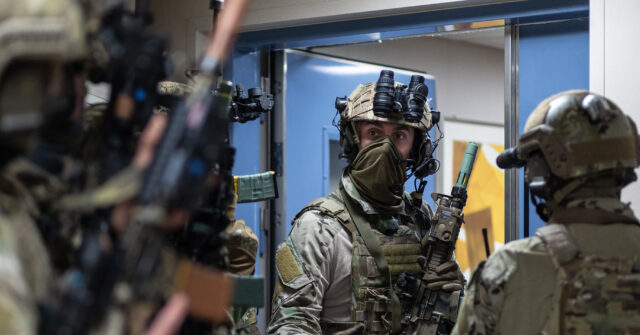“Doubts exist” over whether the UK is prepared to defend its homeland and overseas territories from acts of war and “grey zone” hybrid attacks, while work to rectify the situation is “glacial” and cloaked in counter-productive secrecy, a critical report by the Commons Defence Committee found.
The UK should be honest with the British people about the country’s security situation “and [the public’s] role in it”, and appoint a Minister of Homeland Security to see through the delivery of reforms, the Commons Defence Committee said. A report into the British contribution to European security found that the UK is questionably able to support the wider European security picture because it can hardly defend itself, with even NATO basics like having a plan for homeland defence (a ‘war book’) not thought to be fulfilled.
The “current threat to European security is significant”, with “systemic threats posed by China, Iran and North Korea”, the report found. The “plausible worst-case scenario”, the committee stated they had heard in evidence submissions, is “the potential for the US to be at war with China, or at least heavily engaged in a crisis with China, and Russia comes in and tries to take advantage of that situation”.
To be a credible partner in defence the UK has to be at least able to deter and defend attacks on its own territory, it was stated of basic NATO assumptions. While there are no credible aggressors near to Britain, Russian warships and aircraft frequently approach British territory across the North Sea and, besides, much conflict is now executed in the low-intensity space, through hired hands and sabotage operations.
Shortcomings included the UK having “next to nothing” in air defence, and the committee heard that “the UK would struggle to deal with: a sub-threshold series of crises; a minor conflict involving a European Ally; or a full… conflict”.
Overall, it was stated, the committee had found that the UK is reliant on NATO “to do almost everything with regard to our protection, which includes fielding a credible military force”, and “doubts exist about the UK’s ability” to defend itself.
Crucially, it is not as if the government is unaware of these challenges, the committee reflected, noting copious recent reports and statements from the state, but rather that despite the rhetoric, it seems nothing was being done. It expressed: “measures to remediate seem to be moving at a glacial pace… The Government has said repeatedly that we are in an era of new threat, yet decision-making is slow and opaque.”
While the government makes all the noises of understanding that the wider public need to play a more active role in national defence, it has actually done little to nothing to make this happen and a long-promised “national conversation” so the public understands “not only the necessity of defence but also their role in it” has never materialised.
On even the most basic areas there are failures. For instance, while other European nations that feel threatened by emerging security situations might send out a physical preparedness guide to every home, the UK’s equivalent is an unadvertised website. Security professionals are “sceptical about the efficacy of the Government enablers of resilience” like this, given they were told in evidence: “there is a website page dedicated to what the public should do in the event of an emergency. The problem there is that, in the event of an emergency, the first thing that you are probably going to lose is your electricity and, therefore, I suspect, your ability to read a website”.
Several recent government documents, reviews, and statements have referred to a Home Defence Programme, but as an aspirational thing that may exist in the future rather than a solid priority now. The Ministry of Defence told the Commons Defence Committee that it is “an evolving and enduring programme of work”. Even should it ever come into existence, under present plants it will be kept as an internal government document and not even available to the Committee to scrutinise, never mind being something of use to the public.
The report stated: “The decision not to communicate its intent and contents beyond Government suggests that it does not treat the public, industry or civil society as partners in delivering outcomes, despite the acknowledgement by the Government in the Resilience Action Plan that ‘government cannot do it alone. Resilience has to be a shared responsibility between individuals, communities, businesses, local, devolved, and national government, and public services across the UK’.”
The government should create solid plans for defence which in turn would allow it to contribute to the wider NATO defence picture without simply assuming the United States will always be free and willing to leap to Europe’s defence, the committee said, and called for a new government post of Minister of Homeland Security to push through these reforms.
Read the full article here


